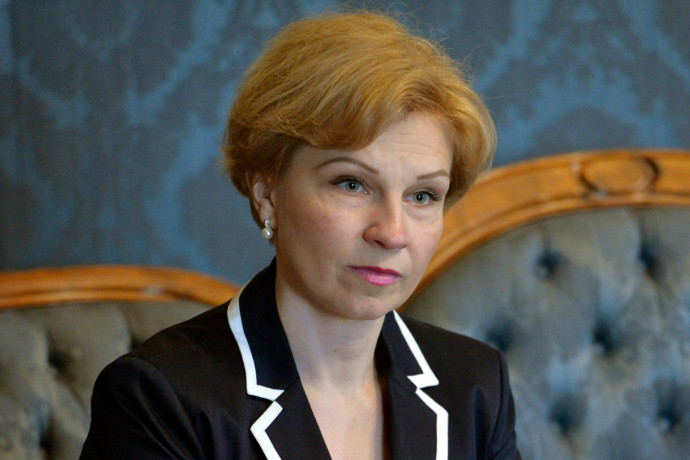
Translation by Andrea Horváth Kávai.
Ukraine’s ambassador to Hungary is holding the Hungarian government to account for not standing up firmly against the Russian aggression, and not standing clearly for Ukraine. Fidesz MP Gyula Budai called the ambassador’s words unfair, claiming that with this, the ambassador has “set foot in the Hungarian election campaign”. Ljubov Nepop sent her response in writing, which was published by hvg.hu.
The ambassador states that while Ukraine had made the same call to all their EU and NATO partners, Hungary was the only one who presented this as an attempt to interfere in the country’s internal affairs. Hungary also made false accusations and kept bringing up the country’s honor. Ljubov Nepop goes on to list what the Russian army is doing in her country:
- they are occupying the cities
- they are destroying the infrastructure used by civilians
- they have forced more than a million Ukrainians to flee their homeland
- they are treating civilians in cities under attack as hostages
- they are firing on humanitarian corridors
- by opening such corridors only towards Russia, they are attempting to abduct the Ukrainians they haven’t killed
- they captured the Chernobyl nuclear plant
- they took over Europe's largest nuclear power plant amid military action and gunfire
- they are murdering Ukrainian soldiers who are defending their homeland
- they are murdering peaceful civilians, including children
Regarding the sanctions Ljubov Nepop remarks that although everyone assumed (in vain) that the possibility of those being introduced would hold Putin back, it is clear that it did not. “Let it be clear for all: we don’t intend to sit around or to willingly climb into our coffin, so the war could end sooner.” – she says.
“Remember what it felt like for you, Hungarians in 1956 when no one heard your cry for help. Did you remain extremely diplomatic when you asked the West to help you fight the Russian tanks?”
Nepop said that since the war will continue for a while, Ukraine intends to repeatedly call on Hungary (among others) to provide more support. She doesn’t doubt that Ukraine will win, but how long at and what price this will happen depends on whether they will be heard, and whether their partners will provide specific help.
Nepop admits that Hungary has the right to make decisions which best suit its own interests, but adds that Ukraine also has the right to give their opinion on how they see these decisions.
“It is our right and responsibility to tell you why it is dangerous not just for us, but for you as well, if we do not succeed in stopping Putin” – writes the ambassador.
Putin’s goal is the demilitarise NATO’s eastern member states – which is the same thing he is demanding from Ukraine today. Except that in our country, he is trying to enforce these demands by bombing.
He is not bombing you – yet.
If we fall, the Russian army will not be thousands of kilometres from you, but it will be right next door.”
“The only way for you to protect yourselves and to stay out of the war is to help Ukraine.”
Nepop is asking that Hungary forget about being offended by the lack of diplomacy, just like Ukraine is choosing to forget the harsh words which are sometimes directed at them. Instead of these, we should be focusing on mutual honesty and true cooperation, as that is the only way to stop the agressor.
At the end of the interview, Ljubov Nepop refers back to Gyula Budai, who publicly called out Ukraine’s ambassador to Hungary, and she has this to say to the state secretary:
“I think it would be fitting to make the same strong public call to the Russian ambassador to stop his country’s war against Ukraine. Or is this request also an unfair interference in Hungary’s internal affairs?”